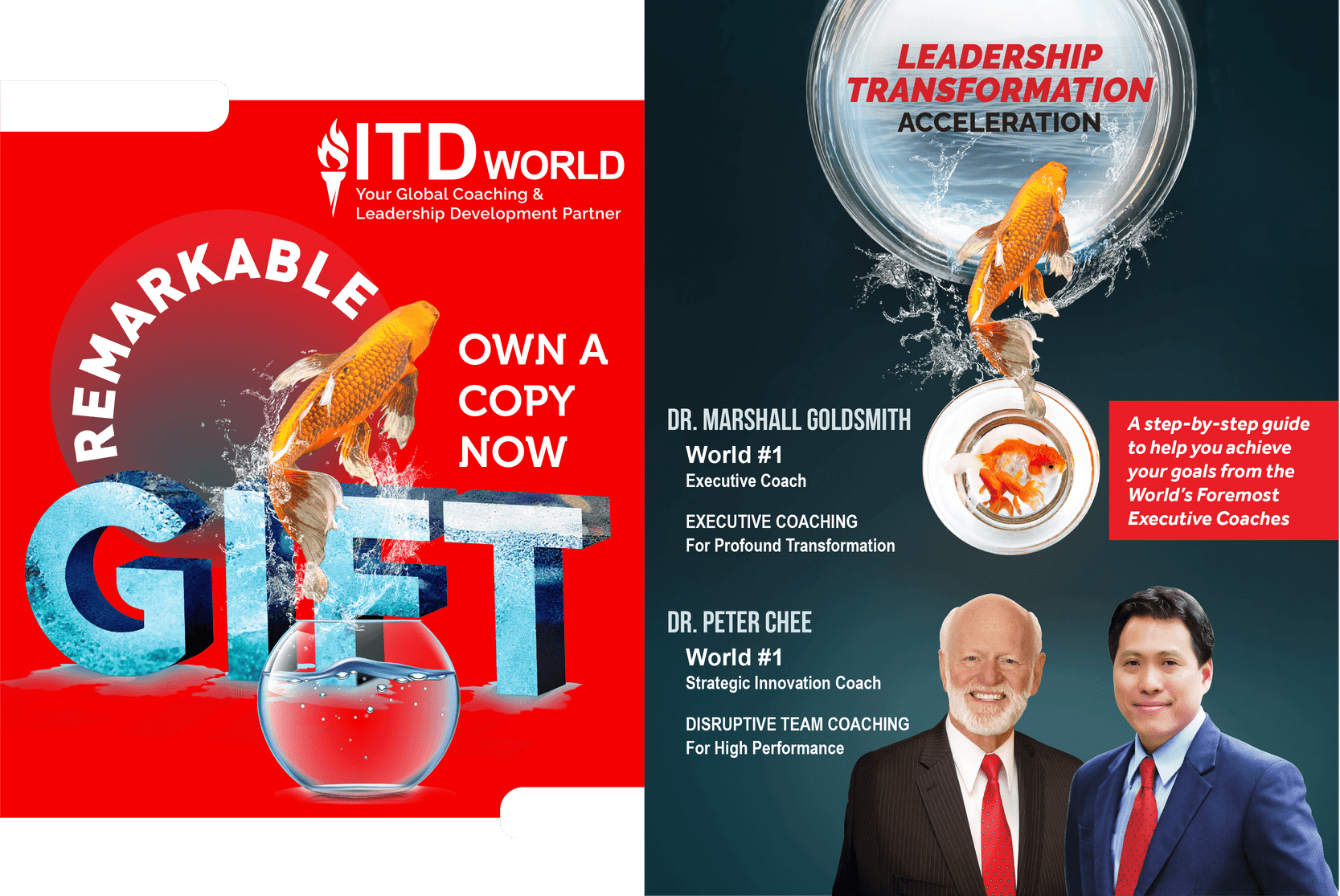


By Dr Peter Chee and Dr Jack Canfield
Great coaches recognized that a coach still needs a coach. That is why they share two traits, humility and coachability. They realized that no one knows everything and so are keen to learn new competencies. These new capabilities are used to refine their techniques to bring out the best in people they coach.
A way great coaches pick up new capabilities is by receiving coaching. By being humble and learning from other coaches, you signal two behaviors for others to role model after, a humble spirit and a coachable heart. These two dispel any pride, complacency, and lack of commitment on your part in the coaching journey.

To be a great coach, you yourself need to be humble and coachable
– Jack Canfield and Peter Chee

The greatest enemy of learning is thinking that you already know. It keeps you from seeking new information and expanding as much as you can. When pride sets in, people think they already know it all; they close their minds to new ideas and valuable feedback, and they are not willing to admit their mistakes.
Such people do not make very effective coaches. Being aware of these barriers helps those who want to become great coaches. They know that in order to overcome such barriers, they must consciously make a choice to constantly build new habits and take action to keep learning and getting coached by others.
Coaches who receive coaching, benefit from resolving their own issues in work and life. They unburden themselves and come out refresh and energize for future coaching sessions. Those who are burdened by their own emotional baggage cannot create great coaching conversations. By being coachable, you enhance your own emotional excellence to effectively coach others for results.
Take the experience of Laura, who told us how she developed exponentially as a coach when she received coaching from a certified and experienced coach. “Being open to receive coaching opened my eyes,” she said.
“I found that I had many of my own self-image and relationship problems to be solved. I was highly stressed and living an imbalanced life like a workaholic aiming for perfection in my career.
“The coaching I received helped me a lot to resolve the personal problems I had, and at the same time, I learned how to be a great coach,” she shared with us during a catch-up session over champagne.

Coaches also fail to teach effectively when they don’t practice what they preach. When a coach encourages people to be disciplined, it would not reflect well on the coach if the coach is showing a lack of discipline. Coaches teach best by example and not by instructing.
When a coach tells people that coaching is good, it is much more compelling when the coach is also undergoing coaching and has gained value from being coached. Living the life of a coach is like living the kind of life you want for the people you coach.
As a coach, you need to model the more effective ways to live and work so that people can observe that you are living a balanced and happy life with good relationships, having your priorities in order, engaging your strengths, and experiencing fulfillment at work.
Continuing from Laura, who owns a coaching business after getting certified, her self-development came in leaps and bounds after transforming her way of thinking. She admitted to being too egoistic at first to want to get coaching from others.
“My mind opened up after speaking to an old friend of my father about my challenges in work and life. He is well known in the coaching industry. “From there, I made the decision to be humble and coachable.I overcame my weaknesses, achieved my goals, and became an effective coach mainly because I got the right coaching,” she said.
Coaching is what you have to offer which flows from who you are. It is difficult to support others when you don’t feel supported. So don’t miss out on the opportunity to be coached, and be reenergized to coach others for results.
Great coaches realize the need for emotional excellence to coach well. It’s difficult to give what you don’t have. The day that you are convinced how beneficial and life changing coaching can be to all human beings, you would not want to miss out on the opportunity to be coached. That is when you embrace that principle that a coach still needs a coach.
TRANSFORMATIONAL COACHING QUESTIONS
EUREKA VIDEO
LATEST HAPPENINGS AT ITD WORLD
EVERYONE CAN COACH FOR A BETTER WORLD
The LETs Coach app enables powerful coaching every time, everywhere and everyone. Use the app to inspire people to bring out the best in people so they can lead their best lives. Leverage on powerful tools to help individuals discover their life purpose, set compelling goals, create actionable plans, foster personal and professional growth, and unlock their full potential, making a positive impact on the world.
LETs Coach contains eight game-changing systems to give you the power of coaching in the palm of your hand. These are crafted to drive motivation, learning, and results for growth and development. Download LETs Coach today to experience tailored experiences in gaining insights, developing new skills and transforming lives.
This globally recognized certification has developed leaders the world over to coach and mentor their teams towards professional excellence and organizational results. Drop us a line to see how coaching and mentoring enables you to live amplify your value to people around you in work and life.
FURTHER RESOURCES



